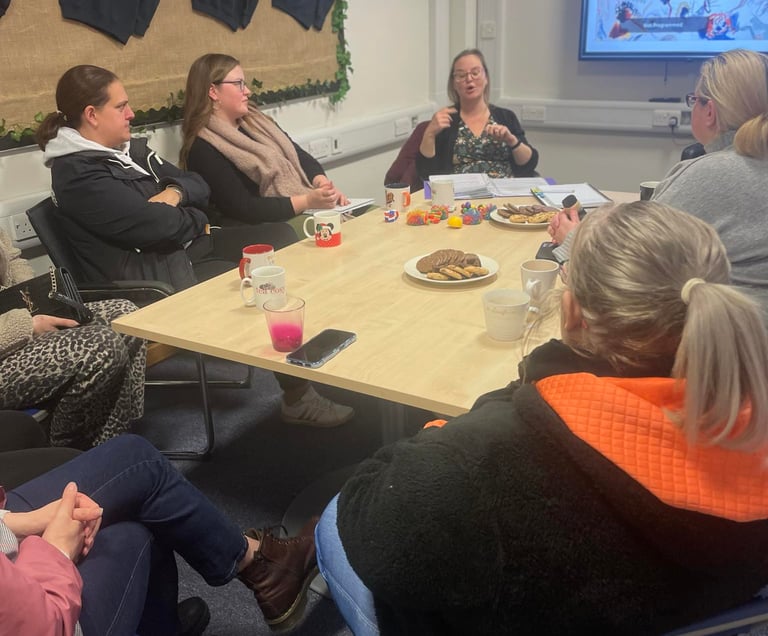Flexible Sessions That Work for You
Sessions are offered in locations that feel most comfortable and accessible to you. This may include home visits, Walk and Talk sessions around Swindon (such as Lydiard Park or Coate Water), or informal settings like McDonald’s (often a favourite with teenagers) or Costa for those who need a caffeine boost.
The focus is always on creating an environment where learning, reflection, and meaningful conversation feel safe, relaxed, and practical.
Initial Appointment
I offer initial appointment to explore concerns, identify potential challenges, and gain a clear understanding of what support may be most helpful.
For children and young people, this often involves working closely with parents or carers to build shared understanding and confidence. Together, we’ll discuss practical next steps and create a personalised support plan, which may include ongoing psychoeducation sessions or signposting to other services where appropriate.
For All Ages
I provide psychoeducation for individuals of all ages, with approaches tailored to developmental stage, learning style, and individual needs.
For young children, support is usually most effective when working primarily with parents, carers, and other key adults. By supporting the adults around a child, we can create consistent, informed responses that promote emotional safety, regulation, and development in everyday life.
Areas of psychoeducation can include understanding:
Mood and anxiety
Phobias (including social anxiety and selective mutism)
Intrusive or distressing thoughts
Coping skills and emotional regulation
Obsessive-compulsive disorder (OCD)
Restricted or disordered eating (including ARFID)
Emotional dysregulation and anger
Communication and assertiveness skills
Trauma and its impact
Relationship difficulties
Low self-esteem and confidence
Identity-related concerns (including gender and sexuality)
Perinatal mental health, including bonding, attachment, and parenting
Postnatal depression and anxiety
Sleep difficulties
My work is compassionate, neuroaffirming, and developmentally appropriate, with a strong emphasis on helping individuals and families understand what’s happening for them and why.
Post-Diagnostic Support
Long waiting lists mean many people wait years for a mental health or neurodevelopmental diagnosis, often with little or no post-diagnostic support available.
Receiving a diagnosis such as Autism, ADHD, or a mental health condition can bring up a wide range of emotions. You may feel relieved, overwhelmed, confused, or unsure how this new understanding fits with past experiences.
Post-diagnostic psychoeducation can support individuals and families to:
Understand a diagnosis and what it means in day-to-day life
Make sense of emotions linked to diagnosis and identity
Navigate decisions around disclosure at work, school, or within families
Explore reasonable adjustments in education, employment, or daily life
Identify strengths alongside challenges
Plan next steps and set realistic, supportive goals
For children and young people, this work often focuses on helping parents and carers understand the diagnosis and how best to support their child at home, school, and in the wider world.
Family Support
I offer a psychoeducational, family-focused approach for families experiencing emotional, behavioural, or mental health challenges.
When supporting younger children, sessions usually focus on parents, carers, and key adults rather than direct work with the child. This approach helps build confidence, consistency, and understanding within the family system, supporting children through the relationships and environments that matter most to them.
Family support may include:
Understanding child and adolescent development
Emotional regulation and co-regulation
Intergenerational trauma and family patterns
Neurodiversity and neuroaffirming support
Understanding behaviour as communication
Developing long-term strategies for family wellbeing
Support can be offered through parent coaching, family-based sessions, and tailored psychoeducation, helping families feel informed, empowered, and better equipped to support their children.
Walk and Talk Sessions
Walk and Talk sessions offer an informal, flexible way to engage in psychoeducation and support while spending time outdoors in local Swindon parks.
Benefits include:
Reduced stress and mental overload through movement and nature
Improved mood and emotional regulation
A more relaxed way to talk without the pressure of sitting face-to-face
Increased comfort for those who find traditional indoor sessions difficult
No eye contact!
Walk and Talk sessions can be particularly helpful for anxious or neurodivergent people who prefer a more practical, movement-based approach.




